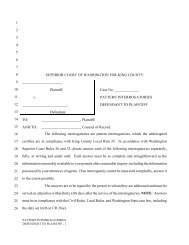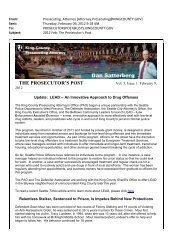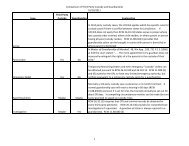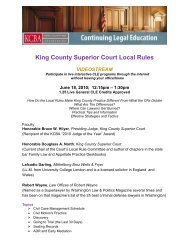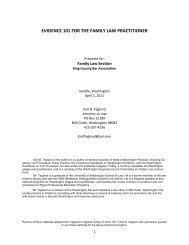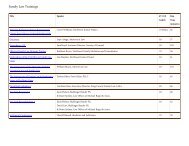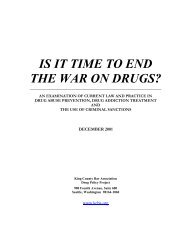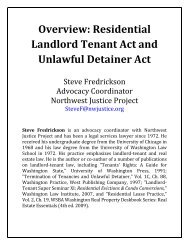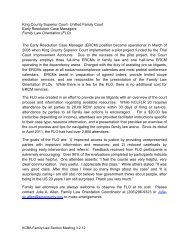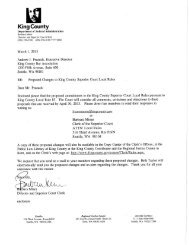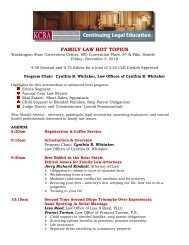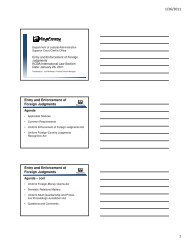Effective Drug Control: Toward A New Legal Framework
Effective Drug Control: Toward A New Legal Framework
Effective Drug Control: Toward A New Legal Framework
You also want an ePaper? Increase the reach of your titles
YUMPU automatically turns print PDFs into web optimized ePapers that Google loves.
Gambling, while not as heavily promoted as alcohol and pharmaceuticals, is still<br />
an advertised “vice.” States promote their own form of gambling – the state lottery –<br />
with commercials but often without any counter-advertising on the harms of gambling.<br />
The states have evolved from regulators of gambling to promoters of gambling. 619 There<br />
are now approximately five million pathological and problem gamblers in the U.S., 620 and<br />
the uneasiness of some state legislators with the promoting of gambling has led some<br />
states to restrict their own advertising, including Massachusetts, which lowered its state<br />
lottery budget from $12 million to $400,000. 621<br />
First Amendment Issues<br />
The weakness of most alternatives to prohibition is that commercial interests<br />
generate advertising and other forms of promotion that produce undesirable<br />
consequences. The challenge is to combat the “black market” with some form of<br />
controlled availability that does not give any commercial interest an incentive for<br />
promotion.<br />
Washington State attempted such a program 70 years ago when it legalized<br />
alcohol and set up state liquor stores. The theory was that the state government would be<br />
the only party legally authorized to buy alcoholic beverages from manufacturers. It<br />
would then provide the beverages in state liquor stores run by salaried state government<br />
employees who have no incentive to promote sales. However, they forgot to account for<br />
the effect of trademarks. Because the state liquor stores resell products marked with<br />
trademarks supplied by the manufacturers, the manufacturers are able to advertise<br />
directly to consumers and thereby promote their products.<br />
One alternative to prohibition would be a system whereby salaried state<br />
government employees purchase only generic products that cannot be identified for<br />
promotion as to source by their inherent characteristics, resell them in packaging that<br />
gives no indication of the original source that could be used for promotion, and make<br />
purchases from a large number of suppliers who contractually agree to refrain from<br />
advertising or other promotion and agree to refrain from engaging in cooperative actions<br />
so that there is no promotion by a group such as the “Dairy Farmers of Washington.”<br />
The prohibition against advertising and other promotion would face no<br />
constitutional problem because it would be agreed to by contract. The state would have<br />
the leverage to make such a system work because the state would be the sole licensing<br />
authority, custodian and purveyor of the substances in question.<br />
In the United States advertising, or commercial speech, is protected as free speech<br />
under the Constitution. 622 However, not all commercial speech is protected. There are<br />
times when the government has a legitimate reason to put restrictions on the commercial<br />
speech. For instance, the commercial speech must concern lawful activity and not be<br />
misleading. But if the government does regulate the speech, there must be a substantial<br />
government interest. If so, the regulation must directly advance the governmental interest<br />
asserted and must do so in a way that is not more extensive than is necessary to serve that<br />
interest. 623



